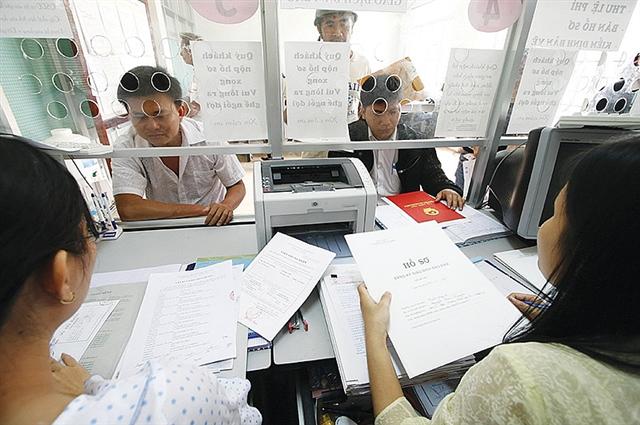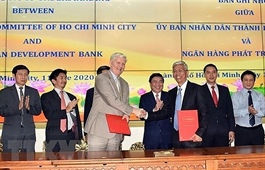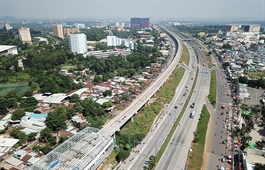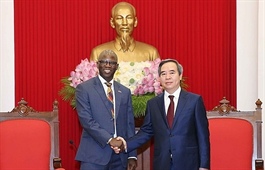Stringent regulations threaten to quell investment appeal
Stringent regulations threaten to quell investment appeal
With increasing debate over the quality of foreign investment, a new regulation requiring overseas investors to ensure pre-approved projects and have an investment certificate before a business is established is being seen as a major hindrance to investment flows.

Commerce and industry groups warn that some regulations do not align with global practices Photo: Le Toan
|
The National Assembly’s (NA) Standing Committee in its Document No.537/BC-UBTVQH14 featured adjustments of the draft amendments to the Law on Investment 2014 after comments from NA deputies. The requirement for pre-approved ventures and relevant certificates at an earlier stage aims to further enhance the selection of foreign investment, thus increasing quality.
“The performance of these regulations will allow authorised state agencies to select foreign-invested projects based on the capacity of financiers, investment fields, locations, and resources for project development such as land, natural resources, energy, labour, technology, and more,” states the document.
In spite of this, many NA deputies and lawyers are worried that the rule might result in possible legal impediments for international ventures.
Vaibhav Saxena, lawyer at Vietnam International Law Firm, said that the draft amendments (including the draft Law on Investment 2014 and the draft decree on guidelines for some articles of the Law on Investment 2014) provides almost the same procedure. However, comparing to the initial investment laws, the draft amendment provides much stricter procedure with some fundamental changes for a foreign investor to establish a business entity in Vietnam.
“Article 22 on the fundamental conditions to establish a business entity of the draft amendment to the Law on Investment 2014 provides more detailed conditions for foreign investor to establish business entity comparing to the Law on Investment 2014. Among those, foreign investors are required to comply with market access conditions prescribed under Article 9 of the draft. This article is still subject to further discussion of the NA due to its ambiguity. Especially, the ‘market access conditions’ term is urged to be clarified,” he told VIR.
Similarly, Nguyen Thanh Ha, lawyer of Vietbid Consulting Co., Ltd. said, “The new regulation would not actually increase the quality of foreign investment. It will take more time and cost more for businesses. Instead, the government could announce a list of closed or conditional business lines, with the remainder open to investors.”
Changes in legal procedures have been among the most talked-about issues among foreign-invested enterprises in Vietnam. The European, American, Japanese, and South Korean chambers of commerce have already raised their voice over the situation.
“We are concerned about recent changes in policy and regulations, which are not consistent with international best practices. These changes expose many foreign investors to considerable risks and obstacles in executing their investments,” said Adam Sitkoff, executive director of the American Chamber of Commerce in Hanoi.
Meanwhile, Antoine Logeay, chairman of the EuroCham Legal Sector Committee, said that the draft proposes conditions for market access to foreign investors. “These include a new point on ‘other conditions as stipulated in the laws, ordinances, and decrees’. This new wording is ambiguous and foreign businesses are concerned that it may be used to impose unreasonable business conditions on them and restrict market access to Vietnam, for example by imposing new requirements for licences or sub-licences,” he explained.
The Southeast Asian nation is currently facing stiffening competition among regional countries which have recently announced new policies to lure foreign investment. For example, Indonesia’s sprawling capital of Jakarta is bettering governance with 16 new policy packages and an omnibus law on taxation, licensing, labour, and small- and medium-sized enterprises.
The amendments to the Law on Investment 2014 will be fine-tuned to further ease procedures for international ventures, encouraging upcoming relocations and igniting a new wave of FDI, especially after the EU-Vietnam Free Trade Agreement takes effect.

























